| |
| |
| |
| Presented By HCA Healthcare |
| |
| Axios Vitals |
| By Tina Reed ·Mar 28, 2022 |
| 🎬 Welcome back from the weekend where I found myself realizing how many great movies I haven't yet seen thanks to the Oscars. ("CODA" is definitely next on my list...) Today's newsletter is 914 words or a 3-minute read. Situational awareness: President Biden's next annual budget proposal is scheduled to drop today. |
| |
| |
| 1 big thing: Health care workforce shortage is a safety issue, too |
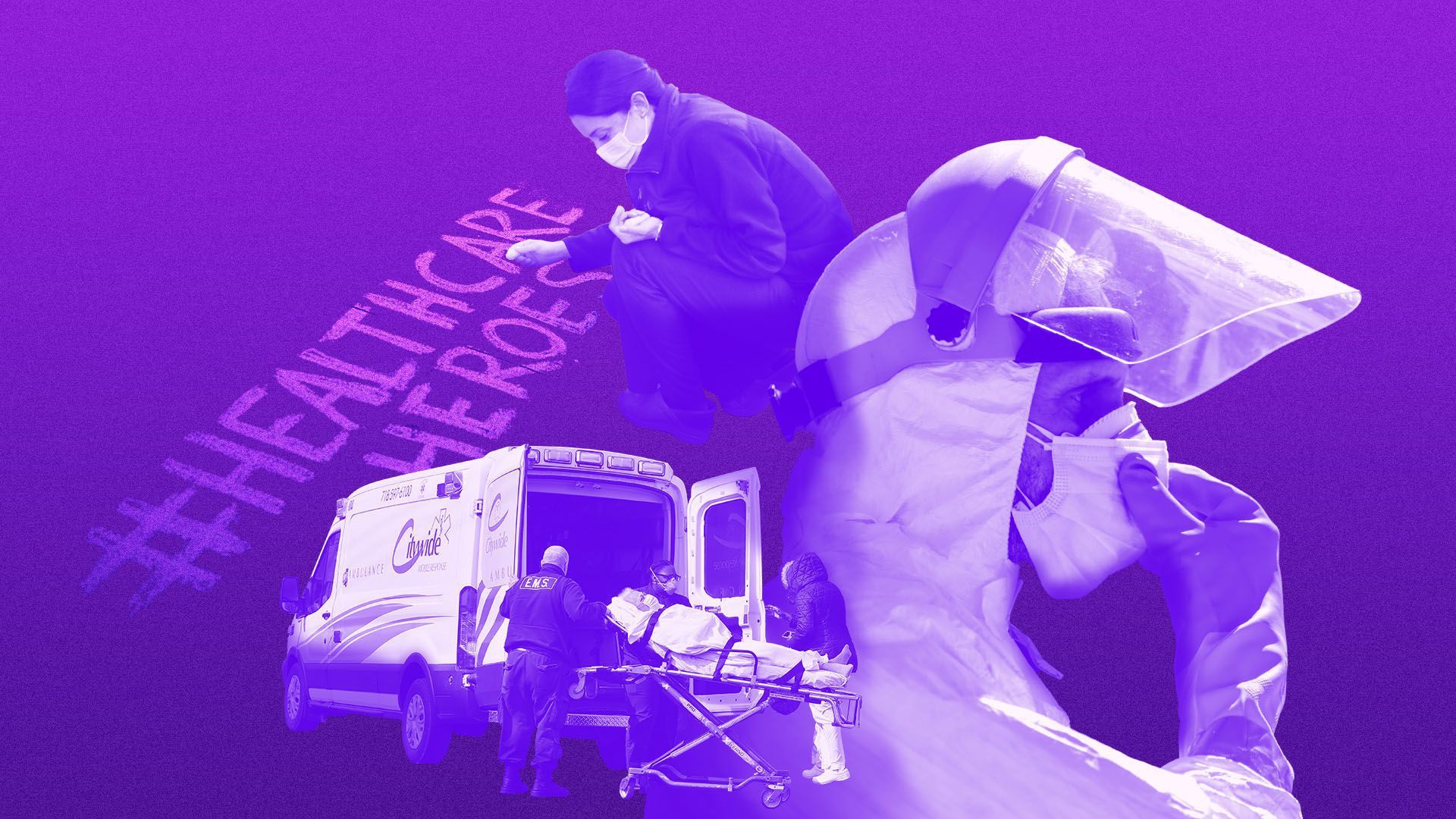 |
|
| Photo illustration: Sarah Grillo/Axios. Photos: Angela Weiss/AFP via Getty Images, Bruce Bennett/Getty Images, and Europa Press News/Europa Press via Getty Images |
| |
| The COVID-19 pandemic and the strain it has put on healthcare workforces is threatening patient care. Why it matters: Years of progress reducing medical errors and preventable hospital-acquired infections were reversed in medical centers and skilled nursing facilities during the pandemic. - But ongoing health care workforce disruptions — including early retirements, nurses shifting to travel positions and increased workloads for those who remain — threaten hospitals' ability to get back on track.
"There's the cognitive overload, the emotional fatigue that makes us, honestly, worse healthcare providers," Megan Ranney, academic dean at the Brown University School of Public Health told Axios, speaking about the industry. The big picture: A number of recent studies and analyses have linked workforce shortfalls to quality concerns. - A study published in the American Journal of Infection Control earlier this month examined two Illinois hospitals and found a correlation between the reliance on traveling nurses and increased infection rates.
- It came just weeks after an analysis published in the New England Journal of Medicine found years' worth of improvements in patient safety in hospitals and skilled nursing facilities — as measured by preventable hospital-acquired infections, falls resulting in injuries and pressure sores — were wiped away at the start of the pandemic.
- Staffing shortages and healthcare workers' mental health were the top two patient safety concerns for 2022, according to healthcare safety organization Emergency Care Research Institute, Healthcare Dive reported.
What they're saying: "The increase in the rates has been a real wake-up call across the United States and internationally," said Linda Dickey, the 2022 president of the Association for Professionals in Infection Control and Epidemiology. Go deeper. |
    |
| |
| |
| 2. Nation powers down on COVID |
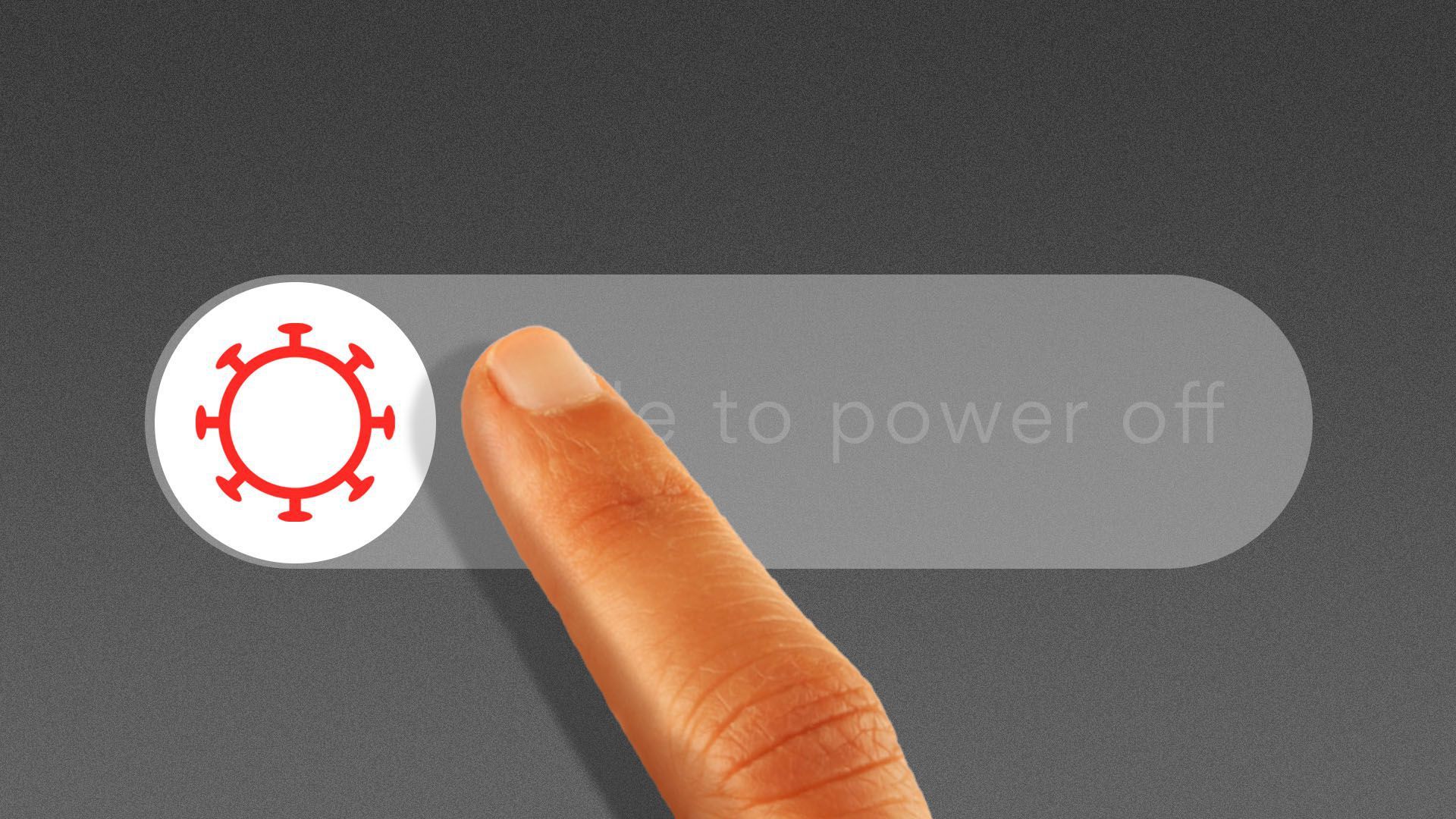 |
|
| Illustration: Sarah Grillo/Axios |
| |
| With America in a pandemic lull, communities across the country are choosing to shut down COVID testing and vaccination sites, even as experts warn that another wave could be on the horizon, Axios' John Frank, Katie Peralta Soloff, Asher Price and Torey Van Oot write. Why it matters: The Omicron surge showed how our defenses can be quickly overwhelmed, but many places are scaling back after more than two years of being in crisis mode. - These latest shifts are often taking place in more solidly Democratic areas that have prided themselves on their pandemic response so far.
For example: Colorado announced last week its intention to close 14 state-run testing and vaccination sites by the end of the month, and it ended a program to ship at-home rapid tests to residents. Minnesota is similarly preparing to shift into an "endemic" phase of pandemic management by finalizing plans to close community testing and vaccination sites. - Gov. Tim Walz told Axios the state will do so "with the ability to pop them out almost immediately should we need them again."
- "What happens if we have to come back here in April, May or August whenever the next surge comes?" he added. "How do we properly scale back up?"
Read the rest. |
    |
| |
| |
| 3. False positives persist with 3D mammograms |
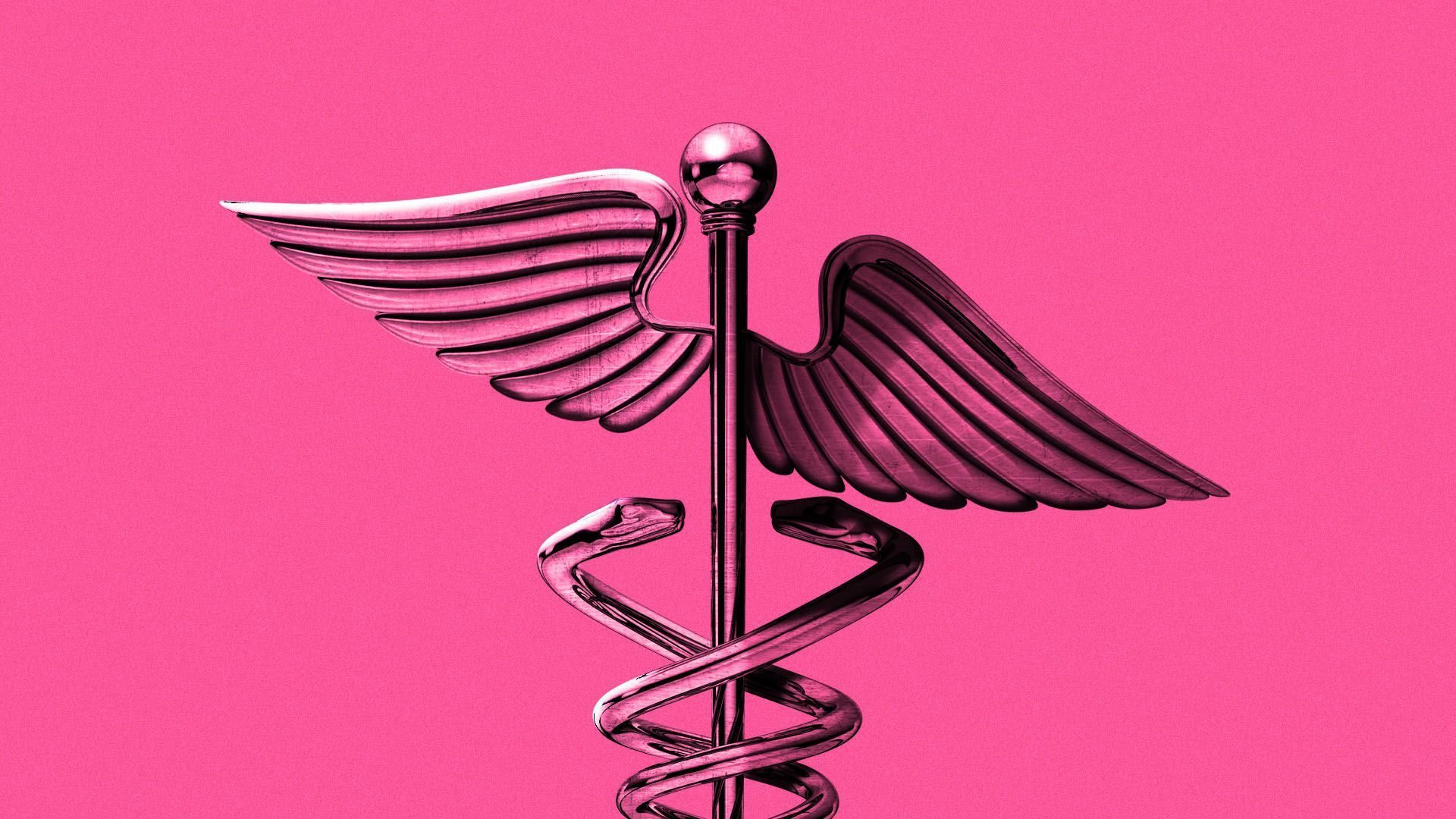 |
|
| Illustration: Sarah Grillo/Axios |
| |
| Half of all women getting 3D mammograms will experience a false positive over a decade of annual screening, a study published in JAMA Network Open found. Why it matters: False positives — when a mammogram is flagged as abnormal, but there is no cancer — have always been a problem. But 3D mammography has been aggressively marketed by hospitals, doctors and some patient groups for its ability to provide higher image quality images — and previous studies have found they result in fewer false positives. Details: In this study, researchers found over 10 years of getting 3D mammograms, 50% of women will experience at least one false-positive recall compared to 56% of women screened with 2D digital mammograms. What they're saying: "Whenever you're called back for an additional workup, it's very stressful because women think they may have cancer," Diana Miglioretti, a lead author and professor and division chief of biostatistics at UC Davis Department of Public Health Sciences, told Axios. - "Often it may take days to even weeks to get that resolved," she said. "The main thing is we want to alleviate women's anxiety over these false positives and understand they are very common."
Share this story. |
    |
| |
| |
| A message from HCA Healthcare |
| Providing healthy food for healthier tomorrows |
| |
 |
| |
| In 2021, HCA Healthcare colleagues assisted families experiencing food insecurity by stocking food banks across the U.S. What this means: We want everyone to have access to nutritious food. Through food drives, HCA Healthcare donated nearly 370,000 meals to our communities. Learn more. |
| |
| |
| 4. ICYMI: Doctors helping doctors in Ukraine |
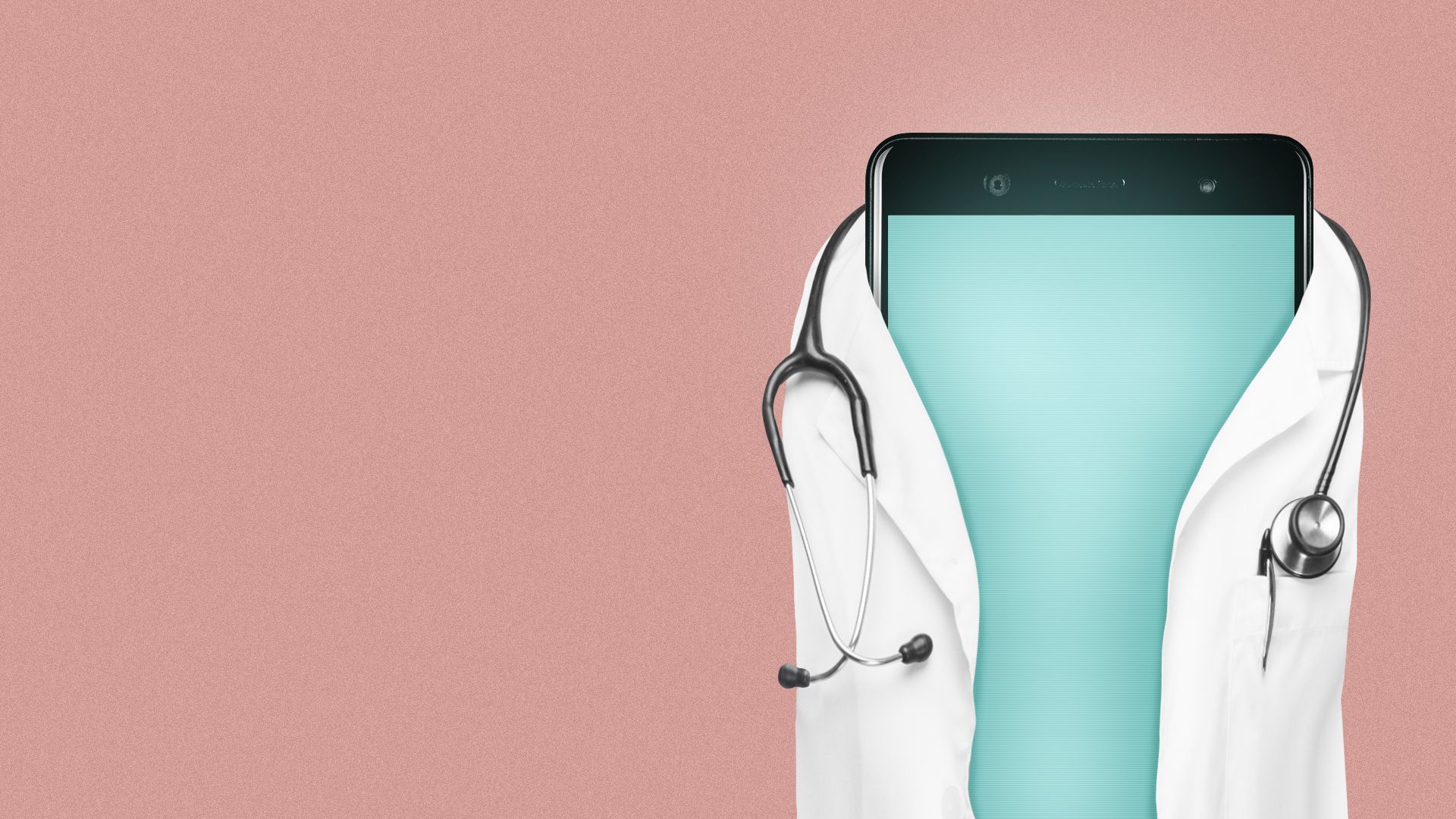 |
|
| Illustration: Aïda Amer/Axios |
| |
| The leaders behind an app called Figure1, a sort of Instagram for doctors, believe the medical knowledge-sharing platform is "purpose-built" for the crisis unfolding in Ukraine, CEO Josh Wildstein told Axios Pro's Sarah Pringle. Why it matters: In war-torn nations, health care professionals can't always get feedback or second opinions, nor do they typically have access to specialists. Figure1's mobile app lets them quickly obtain insights and guidance from their peers in real-time. How it works: The app lets users upload images, information and videos on a current case and receive real-time help from other users. - "In most places in the world, the phone is the lifeline," Wildstein says. "Because [Figure1] is a simple-to-use native app, it's like having a global hospital in your pocket when resources are scarce or knowledge is scarce."
|
    |
| |
| |
| 5. While you were weekending... |
 |
|
| Illustration: Aïda Amer/Axios |
| |
- A Tennessee nurse was convicted Friday of negligent homicide for errors that led to the death of a patient in a case that has raised concerns among others in health care. As Ranney told me: "We're all looking at it and going: 'OK, she was exhausted. She skipped some steps. But we can totally imagine that happening." (KHN)
- Painkillers might be hidden in the venom of cone snails. (Axios)
- After years without the typical employer-based health insurance, the New Yorker's David Owen said he's found Medicare almost "miraculous." (The New Yorker)
- Another monoclonal antibody has failed against the latest COVID variant. (STAT News)
|
    |
| |
| |
| A message from HCA Healthcare |
| When patients are the highest priority |
| |
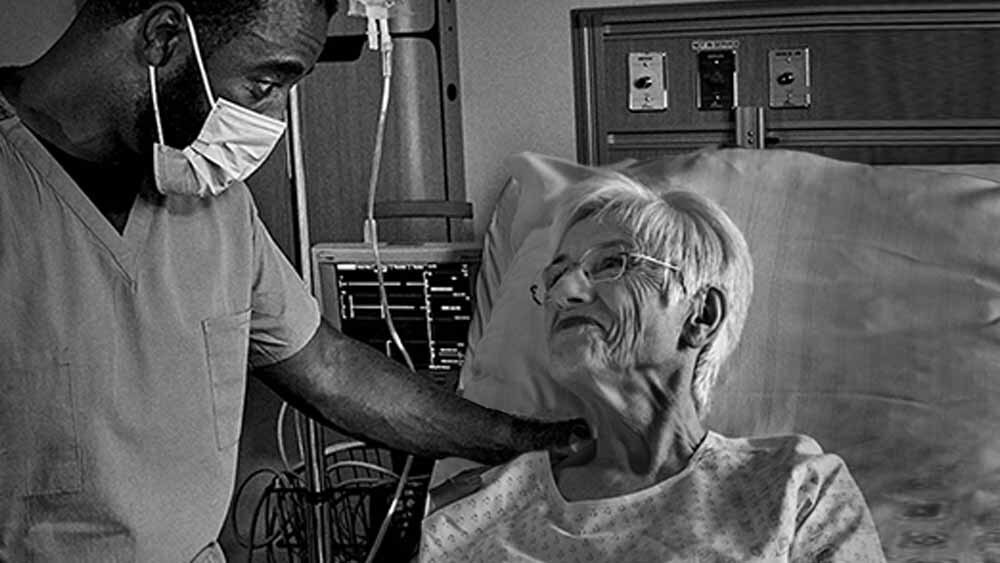 |
| |
| HCA Healthcare provides financial assistance programs that support uninsured or under-insured patients. The impact: In 2021, HCA Healthcare provided an estimated $3.3 billion+ in charity care, uninsured discounts and other uncompensated care. |
| |
| ⚡ Out this morning: Listen to the latest episode of Axios' hit podcast "How It Happened: Putin's Invasion" to hear experts weigh in on how the war in Ukraine could end. |
 | It's called Smart Brevity®. Over 200 orgs use it — in a tool called Axios HQ — to drive productivity with clearer workplace communications. | | |










No comments:
Post a Comment